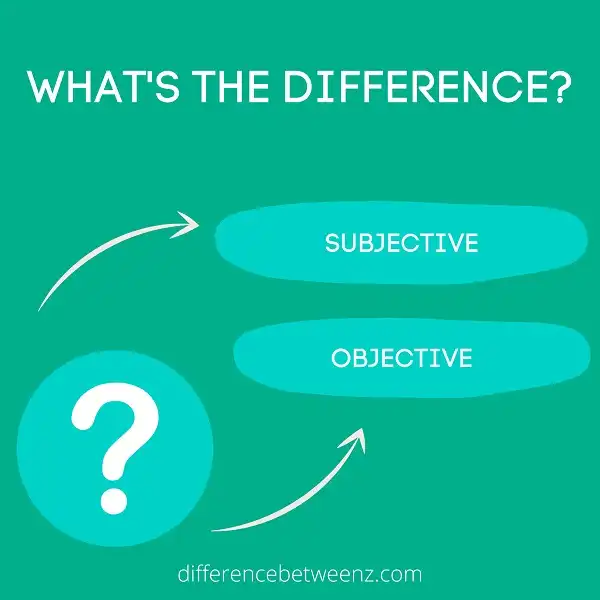Subjective vs. Objective
What is Difference between Subjective and Objective? In the stories, newspapers, and the spoken word, people around the world try to convince others to think like them. You are being bombarded with facts and figures, opinions and projections. It is up to you to create order within this chaos and find the patterns that will help you understand what is true, what might be true, and what is utterly false. To do all this, it is necessary to have a firm control over the objective and the subjective. Below this post is all about the difference between Subjective and Objective.
Difference between Subjective and Objective
Definitions
Objective: it is a statement that is totally impartial. It is not touched by previous experiences or tastes of the speaker. It is verifiable by searching data or performing mathematical calculations.
Subjective: it is a statement that has been delineated by the character of the speaker or writer. It often has a basis in reality, but it reflects the perspective through the author’s views. It cannot be verified using specific data and figures.
Being objective and subjective
Objective – it is important to be objective when you are making any kind of rational decision. It may involve buying something or deciding what job offer to follow. It should also be objective when you are reading, especially the news sources. Being objective when you are going to meet and have conversations with new people helps you to maintain your concentration your goal, and not in the emotions that that meeting could unleash.
Subjective – can be used when there is nothing tangible that is at stake. When you’re watching a movie or reading a book for pleasure, subjective well-being and getting caught up in the world of the characters makes your experience more enjoyable. If you are discussing any type of art, keep in mind that the opinion of everyone about a particular piece is subjective.
An easy way to remember Objective and Subjective
Objective – sounds like the word object. It must be objective when an issue is being discussed. The facts that make up your statement of objectives must also be concrete.
Subjective – it is the opposite. You cannot point to subjective issues. They are all in your head and your past experiences. The subjective opinions are ephemeral and are subject to a series of factors that can go from the facts to the emotions.
Examples of Objectives and Subjective
Objective – scientific facts are objective, such as mathematical tests, basically anything that can be supported with solid data.
Subjective – opinions, interpretations, and any type of marketing presentation are subjective.
Summary:
- Objective and subjective statements are used by people to obtain points of view or talk about a specific topic.
- Objective statements are facts that can be verified by third parties, while subjective statements may or may not be entirely true, since they are the author’s opinions.
- Objective statements are most commonly found in the sciences, while subjective states are generally used to describe the arts.


